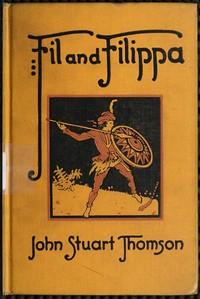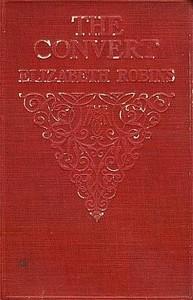Read this ebook for free! No credit card needed, absolutely nothing to pay.
Words: 153264 in 21 pages
This is an ebook sharing website. You can read the uploaded ebooks for free here. No credit cards needed, nothing to pay. If you want to own a digital copy of the ebook, or want to read offline with your favorite ebook-reader, then you can choose to buy and download the ebook.


: The Naval History of the United States. Volume 2 by Abbot Willis J Willis John Jackson W C Illustrator McVickar H W Harry Whitney Illustrator - United States History Naval
from the seaboard villages and towns of New England,--the homes at that time of probably the hardiest seafaring population in the world. Capt. Blakely, who commanded the vessel, had been attached to the "Enterprise" for some time, but had been ordered to the command of the "Wasp" a few days before the former vessel fought her successful battle with the "Boxer." Blakely, while in command of the "Enterprise," had greatly desired to meet an enemy worthy of his metal. Great, then, was his chagrin, when the "Enterprise," two weeks after he quitted her, fought her gallant battle. In a letter written in January, 1814, he says, "I shall ever view as one of the most unfortunate events of my life having quitted the 'Enterprise' at the moment I did. Had I remained in her a fortnight longer, my name might have been classed with those who stand so high. I cannot but consider it a mortifying circumstance that I left her but a few days before she fell in with the only enemy upon this station with which she could have creditably contended. I confess I felt heartily glad when I received my order to take command of the 'Wasp,' conceiving that there was no hope of doing any thing in the 'Enterprise.' But when I heard of the contest of the latter ship, and witnessed the great delay in the equipment of the former, I had no cause to congratulate myself. The 'Peacock' has ere this spread her plumage to the winds, and the 'Frolic' will soon take her revels on the ocean; but the 'Wasp' will, I fear, remain for some time a dull, harmless drone in the waters of her country."
Notwithstanding his impatience, Blakely was forced to endure the restraints of Portsmouth navy-yard for nearly three months, while the "Wasp" was fitting out; but when she did finally get to sea, on May 1, 1814, she proved herself to be far from a "dull, harmless drone." Slipping unobserved through the British blockading line, the "Wasp" made straight for the European coast before a fresh wind, and was soon cruising in the chops of the English channel, where the "Argus" had won her laurels and met with her defeat. Many English merchantmen were captured and burned, and the terror that spread in English shipping circles recalled the days of the "Argus."
At daylight on the 28th of June, the "Wasp" sighted two merchantmen, and straightway gave chase. Soon a third vessel was discovered on the weather-beam; and, abandoning the vessels first sighted, the American bore down upon the stranger. She proved to be the "Reindeer," a British brig-sloop of eighteen guns, carrying a crew of one hundred and eighteen men. Although the British vessel was by no means a match in weight of metal for the "Wasp," her captain, William Manners, brought her into action with a cool gallantry which well justified his reputation as one of the bravest men in the British navy.
At ten o'clock in the morning the ships were near enough to each other to exchange signals, but several hours were spent in manoeuvring for the weather-gage; so that it was not until after three in the afternoon that the action fairly opened. The day was admirably suitable for a naval battle. Light clouds floated across the sky, and the gentle breeze that was blowing had sufficient strength to propel the ships without careening them. The surface of the ocean was unusually calm for that quarter, in which a rather choppy sea is usually running. Before the light breeze the "Wasp" came down upon her foe, bows on, with her decks cleared for action, and the men at their quarters. On the top-gallant forecastle of the "Reindeer" was mounted a twelve-pound carronade, and the action was opened by the discharge of this piece. In the position she then held, the "Wasp" was unable to reply; and her crew had to bear five effective shots from this gun without being able to fire a shot in return,--an ordeal that less well-disciplined crews might not have endured. For nine minutes the Americans returned not a shot; but then the "Wasp" luffed up, firing the guns from aft forward as they bore. The two ships were now lying broadside to broadside, not twenty yards apart, and every shot told. For ten minutes this position was held, and the two crews worked like Furies in loading and firing the great guns. The roar of the cannon was incessant, and the recoil of the heavy explosions deadened what little way the ships had on when fire was opened. Capt. Manners was too old an officer not to know, that, in an artillery duel of that kind, the victory would surely rest with the side that carried the heaviest guns: so he ran his vessel aboard the "Wasp" on the starboard quarter, intending to board and carry the day with the stubborn, dashing gallantry shown by British seamen when once led to an enemy's deck. At the ringing notes of the bugle, calling up the boarders, the British gathered aft, their faces begrimed with gunpowder, their arms bare, and their keen cutlasses firmly clutched in their strong right hands. The Americans took the alarm at once, and crowded forward to repel the enemy. The marines, whose hard duty it is in long-range fighting to stand with military impassiveness, drawn up in line on deck, while the shot whistle by them, and now and then cut great gaps in their straight lines,--the marines came aft, with their muskets loaded and bayonets fixed. Before them were sailors with sharp-pointed boarding-pikes, ready to receive the enemy should he come aboard; while close under the bulwarks were grouped the boarders, ready with cutlass and pistol to beat back the flood of men that should come pouring over the side. The grating of the ships' sides told that the vessels were touching; and the next instant the burly British seamen, looming up like giants, as they dashed through the dense murkiness of the powder-smoke, were among the Americans, cutting and firing right and left. From the deck of the "Reindeer" the marines kept up a constant fire of musketry, to which the sea-soldiers of the "Wasp" responded vigorously. Marksmen posted in the tops of each vessel picked off men from their enemy's decks, choosing generally the officers.
Sharp and bloody though the British attack was, the boarders could make no way against the stubborn stand of the Americans. Capt. Manners, seeing his men beaten back, sprang forward to rally them. He was desperately wounded. A gun-shot had passed through his thighs, and a grape-shot had cut across the calves of his legs; but, maimed and bleeding to death as he was, he leaped into the rigging, and, cheering and waving his sword, called to his men to follow him to the decks of the Yankee. The Britons rallied nobly under the encouragement of their brave captain, and again advanced to the assault. But the figure of the daring officer, as he stood thus before his men, waving his sword and calling on them to come on, caught the eye of one of the men in the "Wasp's" maintop; and the next instant a ball crashed into the captain's brain, and he fell heavily to the deck, with his dying eyes turned upwards toward the flag in whose service he had given his life.
Seeing the British captain fall and the men waver, Capt. Blakely with a cheer called up the boarders of the "Wasp;" and in an instant a stream of shouting sailors, cutlass in hand, was pouring over the hammock-nettings, and driving the foe backward on his own decks. The British still fought stubbornly; but their numbers were terribly thinned, and their officers had fallen one by one, until now the captain's clerk was the highest officer left. Seeing his men falling back before the resistless torrent of boarders, this gentleman finally struck the flag; and the battle ended, twenty-seven minutes after the "Reindeer" had fired the opening gun, and eighteen after the "Wasp" had responded.
The execution and damage done on the "Reindeer" by the "Wasp's" shot were appalling. Of her crew of one hundred and eighteen men, thirty-three were killed or fatally wounded, and thirty-four were wounded. The havoc wrought among her officers has already been mentioned. Evidence of the accuracy and skill of the American gunners was to be seen in the fact that the brig was completely cut to pieces in the line of her ports. Her decks were swept clean of boats, spars, and rigging. Her masts were badly shattered, and her foremast soon went by the board. The "Wasp" had suffered severely, but was in much better condition than her captured adversary. Eleven of her crew were killed or mortally wounded, and fifteen were wounded severely or slightly. She had been hulled by six round and many grape shot, and her foremast had been cut by a twenty-four-pound shot. A few hours' work cleared from her decks all trace of the bloody fight, and she was in condition for another action. But it would have been folly to try to get the crippled "Reindeer" to port from that region, swarming with British cruisers: so Capt. Blakely took the prisoners on the "Wasp," put a few of the wounded on a neutral vessel that happened to pass, and, burning the prize, made his way to the harbor of L'Orient. He had fought a brave fight, and come out victor after a desperate contest. But, though defeated, the plucky British might well boast of the gallant manner in which they engaged an enemy so much their superior in strength. History nowhere records a more gallant death than that of the British captain, who fell leading his men in a dashing but vain attempt to retrieve the day by boarding. In its manoeuvring, in the courage and discipline of the crews, and in the gallantry of the two captains, the action of the "Wasp" and the "Reindeer" may well go down to history as a model naval duel of the age of sails.
The "Wasp" remained in port for several weeks, occupying the time in refitting, and filling the gaps in her crew by enlistment from the American privateers which then were to be seen occasionally in every port of the world. She then put out to sea, and soon fell in with a convoy of ten British merchantmen, under the protection of the seventy-four "Armada." Though he had no intention of giving battle to the line-of-battle ship, Blakely determined to capture one of the merchantmen; and to this end the "Wasp" hung upon the skirts of the convoy, making rapid dashes now at one vessel, then at another, and keeping the seventy-four in constant anxiety. Finally the swift little cruiser actually succeeded in capturing one of the vessels, and escaping before the heavy seventy-four could get to the scene of the conflict. The prize proved to be a valuable one, for she was laden with iron and brass cannon and military stores.
It became known in the United States later that the "Wasp's" adversary in the battle in the darkness was the British sloop-of-war "Avon," of eighteen guns. She was badly cut up by the fire of the American gunners, losing her mainmast early in the action. At the time she surrendered, she was in a sinking condition; and, had it not been for the timely arrival of the brig-sloop "Castilian" and the "Tartarus," both British, the crew of the "Avon" would have been prisoners on the "Wasp," or carried to the bottom in the shattered hulk of their own ship. The loss on the "Avon" was ten killed and thirty-two wounded, while on the "Wasp" but three men were injured.
Of all this the gallant Capt. Blakely was ignorant; and, indeed, it is probable that he never knew with whom he had fought his last battle. For the subsequent history of the "Wasp" is more tragic in its unfathomable mystery than is the fate of the bravest ship ever sent to the bottom by the broadsides of an enemy. What was the end of the "Wasp," and where her bones now lie, no one knows. For some little time after her battle with the "Avon," her movements can be traced. Sept. 12, she captured the British brig "Three Brothers," and scuttled her; two days later, the brig "Bacchus" met the same fate at her hands. Sept. 21, she took the brig "Atlanta," eight guns; and, this being a valuable prize, Midshipman Geisinger of the "Wasp" was put on board, and took her safely to Savannah. He brought the last news that was heard of the ill-fated cruiser for many years. Months passed, and lengthened into years; and still the "Wasp" came not into port, nor could any trace of her whereabouts be found. As time passed on, the attempts to account for her delay changed into theories as to the cause of her total disappearance. All sorts of rumors were afloat. According to one account, the ship was wrecked on the African coast, and her gallant lads were ending their weary lives as slaves to the turbaned Moors of Barbary. Another theory was based on the rumor that an English frigate went into Cadiz much crippled, and with her crew severely injured, and reported that she had been engaged with a heavy American corvette, which had so suddenly disappeared that she was thought to have sunk with all on board. But, as time passed on, the end of the "Wasp" was forgotten by all save a few whose hearts ached for some of the gallant lads thus blotted from the face of the earth.
Years after, the fate of the daring cruiser was again brought into remembrance by fresh news curiously found. When the officers and crew of the "Essex," after that vessel's gallant battle with the "Phoebe" and "Cherub," were sent to the United States under parole, two officers remained at Valparaiso, to give testimony before the prize-court. These gentlemen were Lieut. McKnight, and Mr. Lyman a master's mate. After going to Brazil in the "Phoebe," the two officers took passage in a Swedish brig bound for England. Months passed; and, nothing being heard from them, their friends became alarmed for their safety. In that time, before the day of the telegraph and steam transportation, many things might have easily detained the two officers for a year or more, and nothing be heard of them. But, when two years had passed, inquiries began to be made as to their fate, both by their friends and the naval authorities. The first step was to find the vessel upon which they had left Brazil. This was a work of time; so that it was many years after the disappearance of the officers when the brig was found lying at a London dock. She was the brig "Adonis," and the master proved to be the same who had commanded her when the two officers had taken passage. He readily recalled the circumstance, but claimed that the two passengers had left him in mid-ocean to go aboard an American man-of-war; and in proof of this he brought out the log-book, and, turning back to the year 1814, pointed out the following entries:--
"AUG. 23.--Left Rio de Janeiro; Stephen Decatur McKnight and James Lyman, passengers for England.
Free books android app tbrJar TBR JAR Read Free books online gutenberg
More posts by @FreeBooks

: Fil and Filippa: Story of Child Life in the Philippines by Thomson John Stuart Petersham Maud Illustrator Petersham Miska Illustrator - Philippines Social life and customs; Children Philippines


: Selections from Early Middle English 1130-1250. Part 1: Texts by Hall Joseph Editor - English literature Middle English 1100-1500






